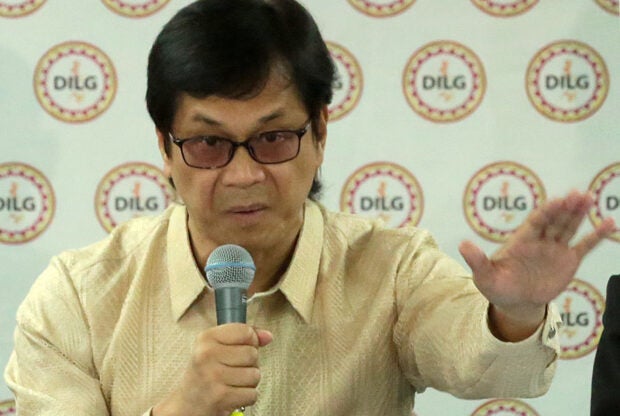DILG chief insists on mandatory drug tests

Interior Secretary Benjamin Abalos Jr. (File photo by GRIG C. MONTEGRANDE / Philippine Daily Inquirer)
MANILA, Philippines — Interior Secretary Benhur Abalos has ordered more frequent random drug testing to be conducted in the offices of the Department of the Interior and Local Government (DILG), as well as local governments, as the government expanded its antidrug campaign in agencies and workplaces.
He warned that those who tested positive for prohibited drugs may be dismissed from the service, after going through a “due process” of evaluation.
“We already have policies in place for random drug testing in government offices, but it should be implemented more importantly in the DILG,” Abalos said on Friday in Camp Crame.
He noted that the move was in line with the thrust of the agency’s anti-illegal drugs advocacy Buhay Ingatan, Droga’y Ayawan program, which focuses more on drug demand reduction and rehabilitation.
The order of Abalos will cover workers assigned to local governments, including barangays, municipalities, cities, and provinces, as well as uniformed personnel of the Philippine National Police, Bureau of Fire Protection, and Bureau of Jail Management and Penology.
The DILG also has jurisdiction over the commissions on women, children and Muslim affairs, as well as the Local Government Academy, Public Safety College, and National Police Commission.
The Civil Service Commission, through its Memorandum Circular No. 13, series of 2017, outlined the guidelines for mandatory random drug tests for public officials and employees, although the legality of mandatory drug testing remained largely undefined in the Philippines.
RELATED STORIES
DILG tells Brgy, SK poll bets: Show willingness to serve country, undergo drug test
Tulfo: PNP drug busters must undergo drug test, reshuffling, neuropsychiatric test
467 BJMP officials, personnel get surprise drug tests; no positive drug results
Subscribe to INQUIRER PLUS to get access to The Philippine Daily Inquirer & other 70+ titles, share up to 5 gadgets, listen to the news, download as early as 4am & share articles on social media. Call 896 6000.